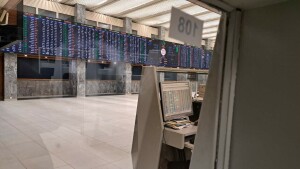Germany said on Thursday it had no plan for now to focus G7 discussions next month officially on the yen, despite concern that the currency's weakness is helping Japanese exports at Europe's expense. Japan, too, was dismissive of the possibility.
The yen firmed on Thursday but then shed much of the gains in response to a series of policymakers' comments before a meeting on February 9-10 of finance ministers and central bankers from the Group of Seven industrial powers, chaired by Germany.
Germany's deputy economy minister, Bernd Pfaffenbach, said the yen was a worry but not an official agenda point so far for the G7 gathering, which takes place in Essen.
"At the moment we are not planning to put it on the agenda," he told Reuters during a visit to the World Economic Forum. "Certainly it (yen weakness) is of concern but that is for the markets to deal with." The remark jarred with comments from one European source who told Reuters on Wednesday that there were hopes of perhaps a more forceful message from Essen than from the previous such meeting in Singapore last September.
"The drafting of the G7 communique is a job for all those involved, but clearly, with respect to the dollar, it is no secret what the European position will be and that is precisely what is embodied in those two standard lines of the communique: sharp moves and volatility are undesirable," the source said.
"With respect to the yen, the message is also relatively clear - that there will be a more forceful repetition of the message that was already given after the Singapore meeting, and that was also then accepted by the then finance minister of Japan, that the evolution of the yen should be in line with economic fundamentals." The euro's gains against the yen in the past year are not far from double those it has made against the dollar.
SINGAPORE SLIM Tokyo spoke up on Thursday after a yen rally that lost some of its fire as the hours wore on. The euro, which is more than 10 percent higher than this time last year, was trading not far short of 157 yen. "There is interest in global imbalances. There are views that the yen is too cheap. But I don't think we will highlight the yen in our discussion," said Hiroshi Watanabe, vice finance minister for international affairs.
"Still, it would be naive to think that no one will discuss it (at the G7 meeting)," Watanabe, known as Japan's top financial diplomat, told reporters. US Treasury spokeswoman Brookly McLaughline declined to comment. In Ottawa Canadian Finance Minister Jim Flaherty said he would raise the issue of currencies and global economic imbalances at the G7 meeting, but avoided talking about the yen.
"I'm not going to comment on any specific currencies other than to say that we have concerns about global imbalances and currencies," he told reporters.
In Davos, Asian Development Bank President Haruhiko Kuroda said yen weakness from carry trades - in which investors sell low interest rate currencies such as the yen to buy assets in higher yielding currencies - had gone too far. "If it starts to unwind the whole process will be reversed. Since (yen weakness) is not based on fundamentals the unwinding is likely to happen within one to two years," he told Reuters in comments which gave support to the yen.
Currency markets, which are ultra-sensitive to the cryptic messages of G7 policymakers, appeared uncomfortable with big short positions amid speculation that Europe could take a tougher tone over the yen's 1-1/2 year slide versus the euro. But analysts remain sceptical about any major move in Essen.
In Singapore, the G7 communique stuck to a standard line of calling for flexible exchange rates, leaving policymakers to offer their own additional spin in post-G7 news conferences.
Tokyo has a reputation for seeking to keep the yen low but has not intervened for a long time in markets to sway the currency. It is not keen to be singled out in official communiques of the G7, which also includes the United States, Germany, France, Italy, Britain and Canada.
Many analysts believe that short of a clear line there is no reason to push the yen higher, at least at long as eurozone interest rates at 3.5 percent remain far more enticing for investors looking for solid returns than Japan's 0.25 percent.
BR100
15,115
Increased By
28.1 (0.19%)
BR30
43,048
Increased By
175.6 (0.41%)
KSE100
149,493
Increased By
257.8 (0.17%)
KSE30
45,518
Increased By
11.6 (0.03%)























Comments
Comments are closed.